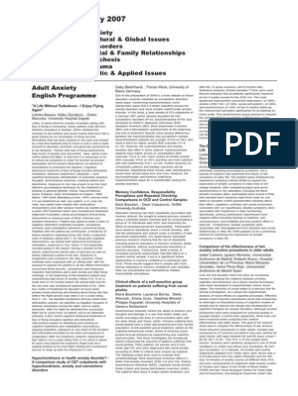0% found this document useful (0 votes)
17 views13 pagesTW Scards
This manual, developed under NIDA Grant DA08608, provides training materials for the Cognitive Enhancements for the Treatment of Probationers (CETOP) program. It includes master copies of strength cards categorized by various divisions of self, discussion topics for use in training, and guidelines for reproduction and distribution of the materials for nonprofit purposes. Contact information for the Institute of Behavioral Research at Texas Christian University is also provided.
Uploaded by
Diana RidicCopyright
© © All Rights Reserved
We take content rights seriously. If you suspect this is your content, claim it here.
Available Formats
Download as PDF, TXT or read online on Scribd
0% found this document useful (0 votes)
17 views13 pagesTW Scards
This manual, developed under NIDA Grant DA08608, provides training materials for the Cognitive Enhancements for the Treatment of Probationers (CETOP) program. It includes master copies of strength cards categorized by various divisions of self, discussion topics for use in training, and guidelines for reproduction and distribution of the materials for nonprofit purposes. Contact information for the Institute of Behavioral Research at Texas Christian University is also provided.
Uploaded by
Diana RidicCopyright
© © All Rights Reserved
We take content rights seriously. If you suspect this is your content, claim it here.
Available Formats
Download as PDF, TXT or read online on Scribd
/ 13






























































































